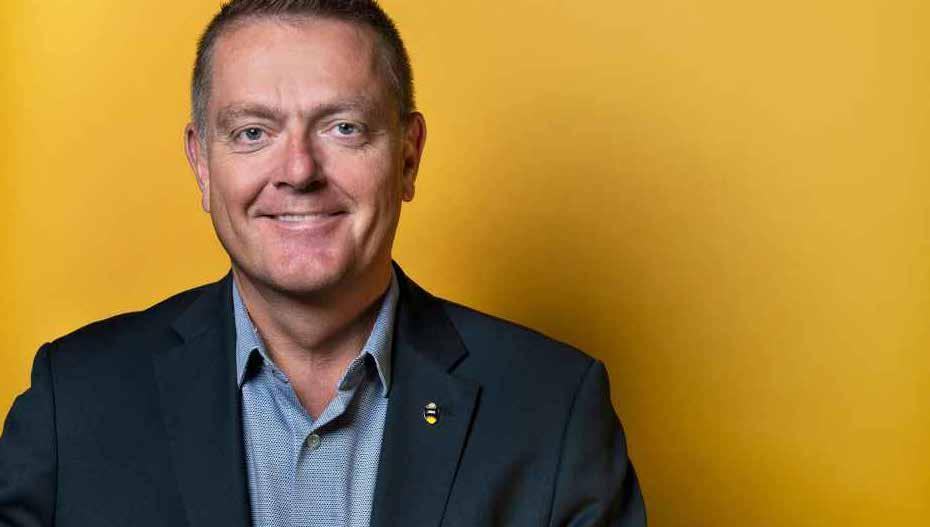
4 minute read
A New Look at Stirling’s Staff Cuts
A New Look Into Stirling’s Staff Cuts
Opinion Piece by Georgia Nolan
Flinders University is a place of high-quality education, innovation and diversity – Or, at least, it used to be. A series of cuts to Flinders’ courses and teachers, and seemingly never ending ‘restructuring’ of faculties, had led to significant backlash and resentment from the student body. From this student’s perspective, it feels like our Vice-Chancellor (the Uni’s peak administrative officer), Colin Stirling, has been chasing cuts and restructures for the last five years, to the disadvantage of nearly every one else. It appears his plans are a desperate attempt to cut corners for his own benefit, even if it involves the ruthless culling of esteemed academics – apparently that $1.2 million dollar salary isn’t enough. We, as a student body, came to university to learn and develop skills to further ourselves and our professional futures – and we put our faith in Flinders to do so. But to achieve this, good-quality teaching is a pre-requisite. How are we supposed to receive this highquality education when there are never-ending changes being inflicted upon our teaching staff and our courses? This summer, I spoke to two key academics who have left our university due to Stirling’s restructures and staff culling. The first was Tanya Lyons, who previously taught International Relations and Politics topics, specialising in African Politics. Lyons accepted a voluntary (cough cough) redundancy package in late 2018. However, she argues that ‘there was really no choice […] if I didn’t take it, there was high change of losing my tenured position anyway’. One has to agree with Lyons. These “voluntary” redundancy packages don’t feel particularly voluntary. As Associate Professor Hunter explains in an article published by the ABC, ‘it’s voluntary in the sense that if somebody puts a gun to your head and says, ‘give me all your money’, it’s a voluntary choice to do so, rather than get shot’. So, perhaps not voluntary, and perhaps, not even redundant – as Lyons points out ‘After I left they asked me to recommend someone to teach my African topics […] They used all of my materials, and paid a short-term contractor, or casual to do part of my job. Clearly not redundant!’ Decades of experience and achievement is obviously no match against money-saving hacks like mass casualisation. It is ruthless, economic shortcuts like these
which make many at Flinders doubtful of its mission towards “maintain[ing] the highest professional and ethical standards”. The second axed-academic I talked to was Fran Baum, the previous Head Researcher of Flinders’ Southgate Institute. Baum’s departure was announced by the University in late October, after the Institute was forcibly shut down. This decision shocked the community, with ‘many people around the world [having] expressed great surprise at the actions of Flinders’ as Baum states. In a statement to Croakey, a university’s spokesperson, the “restructure” would “incorporate the functions of Southgate” but also broaden “research and education” across the discipline. They also stated it would “prioritise the employment of academics identifying as Aboriginal and/or Torres Strait Islander” Whilst this being marketed as a genuine plan to promote and increase diversity, Baum is also well-known for her “extensive” research “with Aboriginal health services in SA, NT, NSW and Queensland”, and has “established trusting long-term relationships” with these services. Professor Sharon Friel, Professor of Health Equity and Director of the Menzies Centre for Health Governance states, ‘as an outstanding activist academic Fran speaks truth to power – which clearly Flinders Uni does not like’. Then again, Flinders is no stranger to axing many leading academic women. In fact, it stands as a current theme of the university to remove many brilliant women of their careers; at least Baum has found herself in fine company. “It was extremely disappointing that of the four staff declared disestablished in Flinders Public Health three were senior women,” Baum informs. “Emma Miller, senior lecturer and an infectious epidemiologist, Associate Professor Lillian Mwanri, a public health physician from Tanzania with lots of low-income country experience, and me, a Matthew Flinders Distinguished Professor, with a very strong record of bringing substantial research funds to the University.” I would be remiss not to mention Luciana d’Arcancieli, a senior Italian lecturer, who was once so highly sought after that Flinders paid for her relocation to Adelaide from Italy so that its students would have access to the very best. d’Arcangeli was highly involved in the recent protest against Stirling’s most recent cuts and the proposal to cut Italian Studies from the curriculum. The protest, held in October 2021, attracted the attention of local MPs, and Italian Consul Adriano Stendardo and lead to Stirling backing down on his previous notion to cut the subject. But this win was not without its losses. D’Arcancieli left Flinders following the protest. Whether this departure was for a personal reason, or a selfless compromise to protect the jobs of more junior staff, a deal d’Arcangeil hinted at during her protest speech, is unconfirmed. The loss of these leading ladies is a loss for our community here at Flinders. The uncertainty, fear, and pressure of being overworked and underappreciated, has permanented our teaching staff and stained our experiences. It is time that we, as a student body look out for our teachers, our supervisors, our mentors; the people who work diligently to help us make our dreams a reality.

Volume 49, Issue 02









